Eczema
At Pinnacle Dermatology, our experienced dermatologists specialize in diagnosing and treating eczema. We provide personalized treatment plans tailored to your specific symptoms and triggers. Working closely with our skin care experts, you can develop a comprehensive management strategy to effectively control your eczema and improve your skin health.
With expert care and guidance from Pinnacle Dermatology, you can achieve relief from eczema and regain your skin confidence.
Examples of Eczema
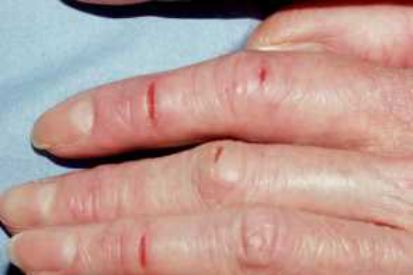
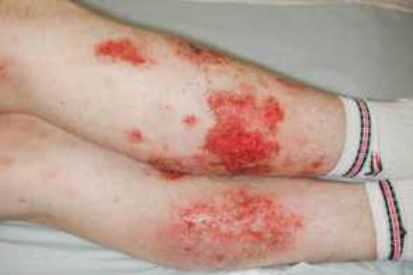
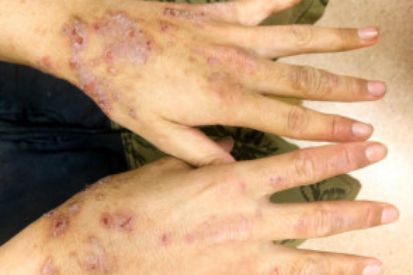
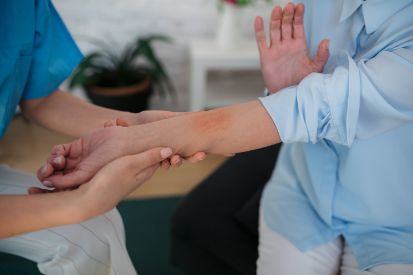
What are the symptoms of Eczema?
- Dry, sensitive skin.
- Intense itching.
- Red, inflamed skin.
- Recurring rash.
- Scaly areas.
- Rough, leathery patches.
- Oozing or crusting.
- Areas of swelling.
Causes of Eczema
- Specific gene variations can affect the skin's ability to provide an effective barrier against irritants and allergens.
- Exposure to certain irritants or allergens, such as harsh soaps, detergents, fragrances, and certain fabrics.
- Your immune system may overreact to certain substances, leading to inflammation and skin irritation.
How to Prevent Eczema
- Gentle skincare and cleansers.
- Avoiding hot baths and tight clothing.
- Seeking medical advice from a dermatologist.
Eczema FAQs
Flare-ups can be triggered by allergens, irritants, environmental factors, and stress.
No, eczema is not contagious; it is a non-communicable skin condition.
Yes, eczema can affect individuals of all ages, from infants to adults.
While there is no cure for eczema, it can be effectively managed with proper treatment and lifestyle adjustments.
Gentle skincare practices, such as using mild soaps, avoiding hot water, and applying moisturizers regularly, can help alleviate eczema symptoms.
Dermatologists are instrumental in effectively managing eczema, a chronic skin condition causing inflammation and itching. They excel in diagnosing eczema accurately by considering medical history and symptoms. Crafting personalized treatment plans, they recommend skincare routines, medications like corticosteroids or antihistamines, and advise on triggers and lifestyle changes. Dermatologists also monitor progress, offer advanced therapies for severe cases, and prevent complications like infections. Their guidance, education on proper skincare, and ongoing support significantly improve symptom control, enhancing the quality of life for eczema patients.
Watch: Eczema Symptoms
How to Treat Eczema
Dermatologists offer specialized care to manage eczema symptoms and improve the quality of life for individuals with this chronic skin condition. Treatments commonly include:
- Prescription Medications: Dermatologists may prescribe topical corticosteroids or non-steroidal anti-inflammatory creams to alleviate inflammation and itching.
- Topical Medications: These medications help modulate the immune response, reducing inflammation in the affected skin areas.
- Systemic Medications: In severe cases, oral or injectable medications may be recommended to address widespread or persistent symptoms.
Your dermatologist can offer invaluable education on skincare practices, lifestyle modifications, and preventive measures, empowering you manage their eczema more effectively. Regain your confidence and build on your healthy skin journey by scheduling an appointment with one of our providers.
Featured Blogs
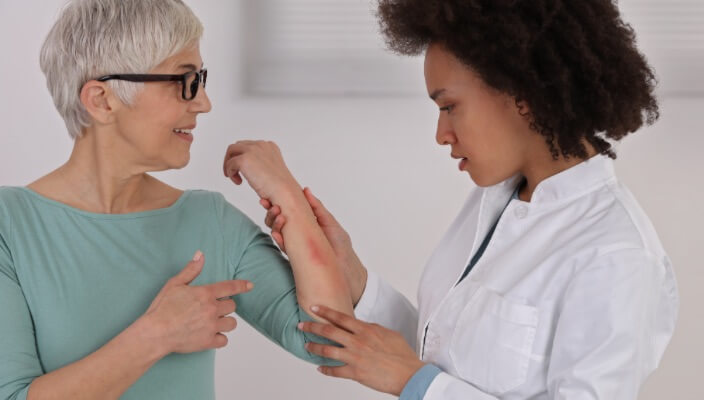
- General Dermatology
- Chronic Skin Conditions
Eczema, a chronic skin condition characterized by inflammation and intense itching, can be challenging to manage, especially during flare-ups.
Read More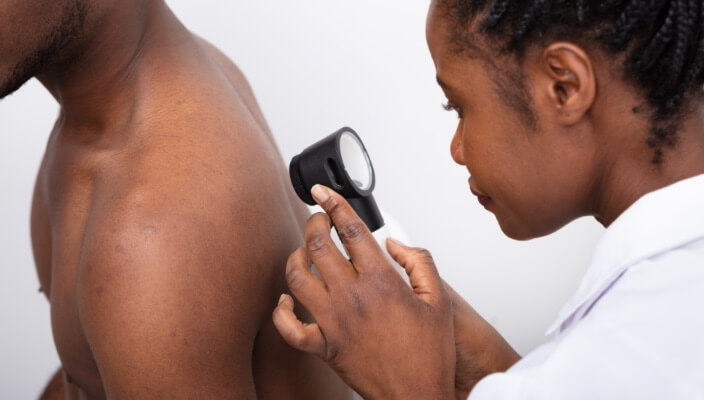
- Skin Cancer
- Skin Exams
Total Body Skin Exams (TBSEs) are crucial for healthy skin. Learn more about the importance of TBSEs and skin cancer detection.
Read More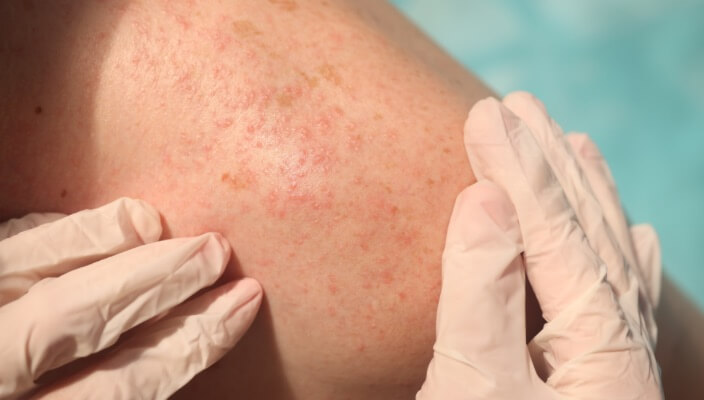
- General Dermatology
- Skin Exams
- Chronic Skin Conditions
Explore our comprehensive guide to gain insights into accurate diagnosis and expert care for chronic skin conditions.
Read MoreFeatured Products

CLn Facial Cleanser
CLn Facial Cleanser is designed for delicate and sensitive skin. It is an effective cleanser, formulated to sooth irritation and to minimize tightness and stinging. It works well in conjunction with drying acne topical medication. Designed for skin prone to rosacea, eczema, redness, irritation and dryness. 3.4 fl oz / 100 mL

SEEN Magic Serum Fragrance Free
This award-winning fragrance-free hair serum reduces frizz, adds shine, nourishes and provides hair with protection against heat up to 450º F. Developed specifically to be safe for sensitive, acne-prone, and eczema-prone skin. 1.0 oz Ingredients: Ethylhexyl olivate, C13-15 Alkane (plant derived), Squalane


